Blog

Blog

Blog

The Ultimate Guide to Choosing Eco Friendly Sofa Fabric for a Sustainable Home
When selecting the perfect addition to your living space, the choice of sofa fabric significantly impacts not only aesthetics but also the environment. With an increasing emphasis on sustainability, consumers are becoming more aware of the materials used in their furniture, particularly fabrics that contribute to a healthier home and planet. According to a recent study by the Global Sustainability Institute, approximately 60% of consumers prefer eco-friendly products, particularly in home furnishings. Choosing sofa fabric made from organic or recycled materials can substantially reduce your carbon footprint and support sustainable practices. Additionally, the Sustainable Furnishings Council reports that eco-friendly alternatives can decrease indoor air pollutants and enhance the overall well-being of your living environment. This guide aims to navigate the plethora of options available, empowering you to make informed decisions that align with your values and contribute to a sustainable home.
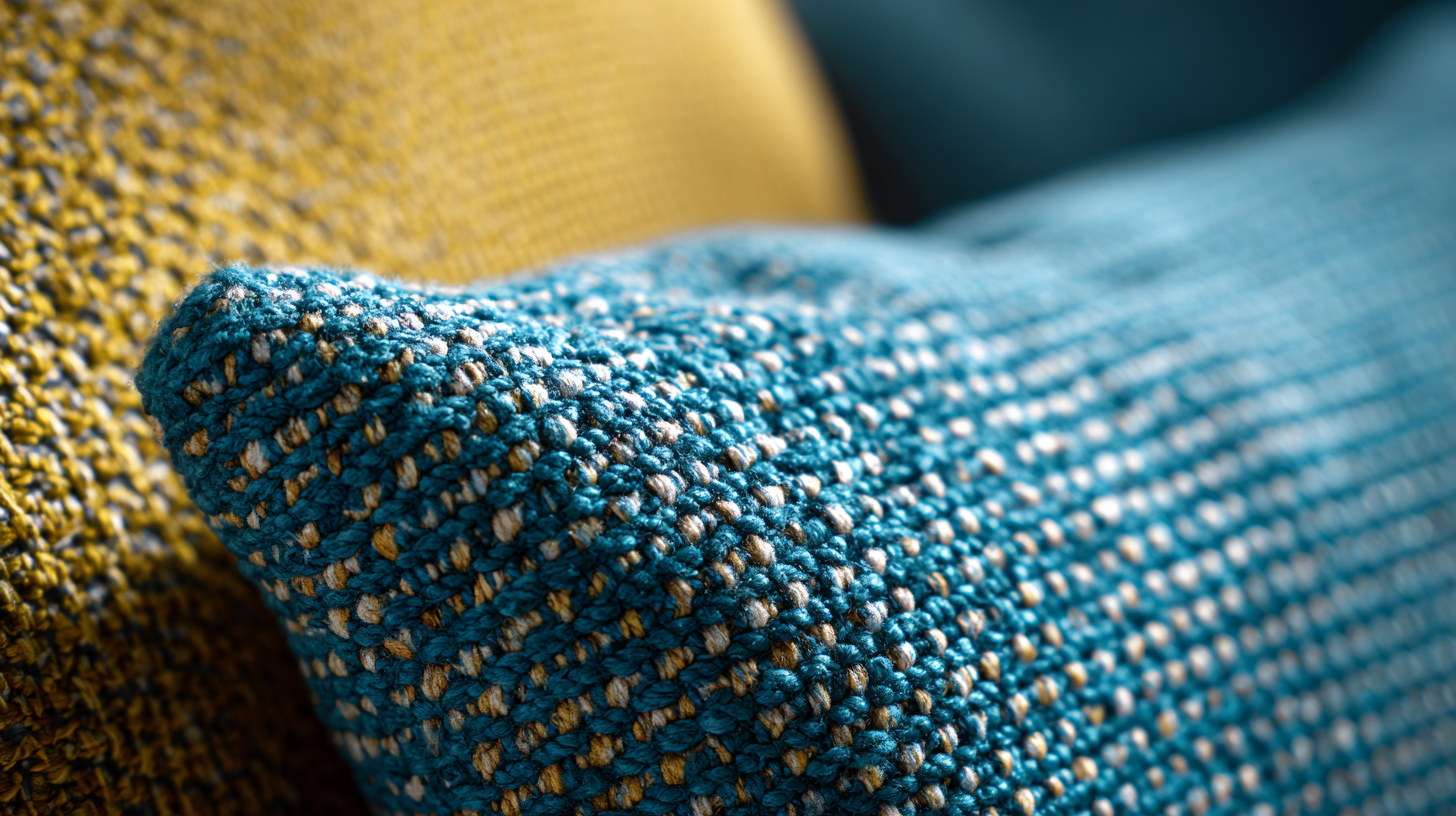
Understanding Eco-Friendly Fabrics: Key Characteristics and Benefits
When it comes to choosing eco-friendly sofa fabric, understanding the key characteristics and benefits of sustainable options is essential. Eco-friendly fabrics often come from renewable resources, utilizing materials like organic cotton, hemp, linen, and bamboo. These fabrics are not only biodegradable but also require less water and pesticides compared to conventional fabrics, making them a better choice for the planet. Additionally, many eco-friendly options are produced using low-impact dyes and environmentally-friendly manufacturing processes, reducing harmful waste.
Tips for selecting the right fabric include looking for certifications such as GOTS (Global Organic Textile Standard) or OEKO-TEX, which ensure that the materials meet specific environmental and social standards. It’s also important to consider the longevity and durability of the fabrics, as choosing high-quality options can decrease the need for replacements. Lastly, check for any added chemicals or treatments, as some may negate the benefits of the eco-friendly fabric, impacting both sustainability and indoor air quality.
Types of Sustainable Materials Ideal for Sofa Upholstery
When selecting eco-friendly sofa fabric, it's essential to consider sustainable materials that not only reduce environmental impact but also enhance the comfort and aesthetics of your living space. **Organic cotton** is a popular choice, as it is grown without synthetic pesticides or fertilizers, making it safe for your home and the planet. Another excellent option is **hemp**, which is a highly durable and breathable fabric that requires very little water to grow. Its natural resistance to mold and mildew adds to its appeal as a sustainable upholstery fabric.
**Tips:** Always look for certifications like GOTS (Global Organic Textile Standard) or Oeko-Tex when shopping for sustainable fabrics, to ensure that they meet rigorous environmental and social criteria.
For those seeking alternative materials, **recycled polyester** derived from post-consumer plastic bottles is gaining traction. This fabric not only recycles waste but also offers a variety of texture and pattern options, making it versatile for various design themes. Additionally, **linen**, made from the flax plant, is biodegradable and consumes fewer resources compared to conventional fabrics.
**Tips:** Consider mixing and matching sustainable fabrics to achieve a unique look while maintaining eco-consciousness in your home décor.
The Ultimate Guide to Choosing Eco Friendly Sofa Fabric for a Sustainable Home - Types of Sustainable Materials Ideal for Sofa Upholstery
| Material Type | Sustainability Features | Durability | Maintenance | Comfort Level |
|---|---|---|---|---|
| Organic Cotton | Grown without harmful chemicals | Medium | Machine washable | Soft and breathable |
| Linen | Biodegradable and natural | High | Dry clean recommended | Cool and comfortable |
| Recycled Polyester | Made from recycled plastic bottles | High | Spot clean | Soft and versatile |
| Hemp | Low water and pesticide usage | Very high | Easy to clean | Rough texture but softens with use |
| Tencel | Sustainably sourced from wood pulp | High | Machine washable | Silky soft and breathable |
Evaluating Fabric Durability and Maintenance for Long-Lasting Use
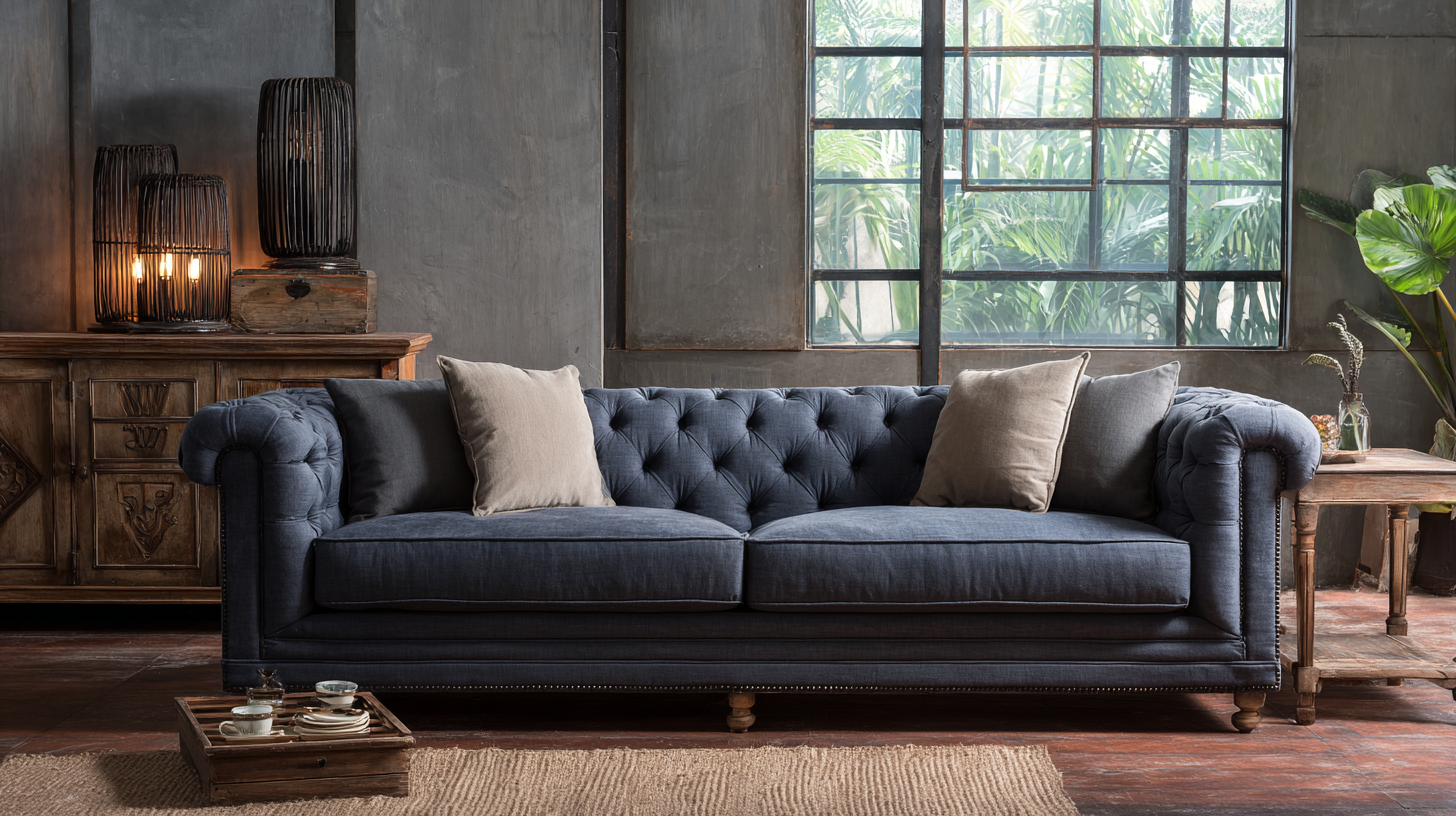 When selecting eco-friendly sofa fabric, evaluating durability and maintenance is crucial for ensuring long-lasting use. Fabrics that are resistant to wear and tear, especially in homes with kids and pets, should top your list. Modern technology has led to the development of textiles that not only look good but also withstand daily usage, thereby extending their lifespan. Look for performance-oriented materials that offer a balance of durability and aesthetic appeal, as investing in quality will save you money and resources in the long run.
When selecting eco-friendly sofa fabric, evaluating durability and maintenance is crucial for ensuring long-lasting use. Fabrics that are resistant to wear and tear, especially in homes with kids and pets, should top your list. Modern technology has led to the development of textiles that not only look good but also withstand daily usage, thereby extending their lifespan. Look for performance-oriented materials that offer a balance of durability and aesthetic appeal, as investing in quality will save you money and resources in the long run.
Tips: Opt for fabrics that are easy to clean, such as those treated with stain-resistant finishes. Additionally, consider the weight and thickness of the material—heavier fabrics typically offer better durability. Lastly, don’t forget to check whether the fabric can hold up against fading and abrasion, ensuring your sofa remains vibrant and intact for years. By focusing on these attributes, you can choose a sofa fabric that meets both sustainability and usability demands.
Ethical Sourcing and Production: The Importance of Transparency
When selecting eco-friendly sofa fabric, ethical sourcing and production play a crucial role in the sustainability equation. The increasing consumer awareness of environmental issues has prompted manufacturers to adopt more transparent practices. This transparency reflects how materials are sourced, processed, and brought to market, which helps consumers make informed decisions. Fabrics made from organic or recycled materials are often accompanied by certifications that ensure they have minimal ecological impact, promoting a healthier planet.
Moreover, ethical production encompasses fair labor practices, ensuring that those who produce these sustainable fabrics are treated with respect and compensated fairly. Brands that prioritize transparency not only provide information about their supply chains but also engage in storytelling that connects consumers to the artisans behind their products. This connection enriches the buying experience and fosters a sense of responsibility and community among consumers. By choosing brands with a commitment to ethical sourcing and transparent production practices, individuals can support a sustainable home while advocating for equitable treatment within the industry.
The Ultimate Guide to Choosing Eco Friendly Sofa Fabric
Design Considerations: Aesthetic Appeal of Eco-Conscious Sofa Fabrics
Choosing eco-friendly sofa fabrics not only benefits the environment, but it also elevates your home’s aesthetic appeal. According to a report by the Global Sustainability Study, 72% of consumers feel positively about brands that are environmentally responsible. When selecting fabrics like organic cotton, linen, or hemp, homeowners can achieve stylish designs while contributing to sustainability. These materials are not only biodegradable but also often produced with lower environmental impact, ensuring a minimal carbon footprint in your home decor.
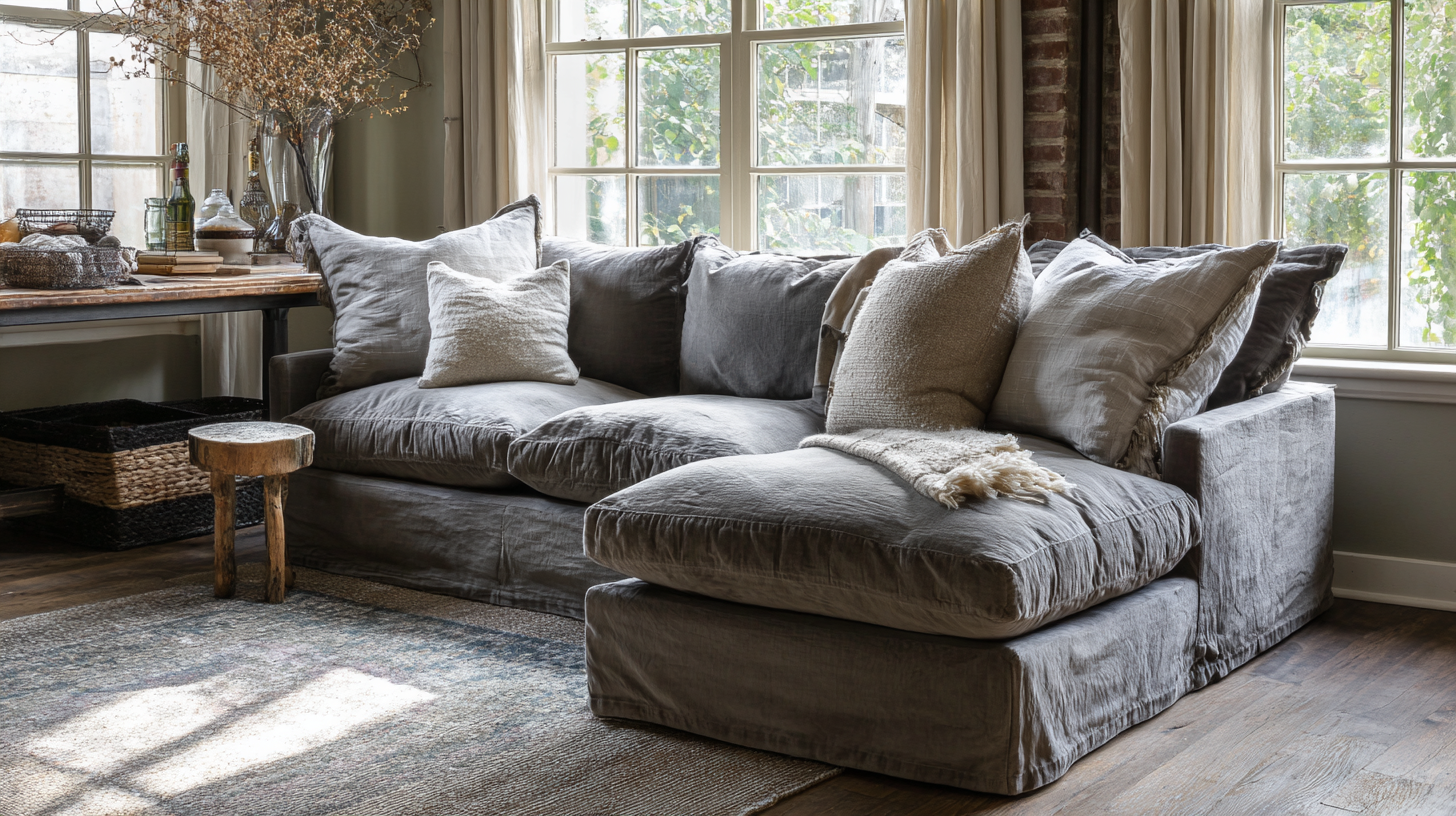
Design-wise, eco-conscious fabrics offer a myriad of options that match various interiors, from minimalist to bohemian. For instance, fabric made from recycled materials can feature unique textures and patterns that add character and depth to your space. A study from the Sustainable Furnishings Council reveals that 63% of consumers prefer eco-friendly options that still deliver high design quality. With sustainable sofa fabrics, you can create a welcoming environment that resonates with both beauty and responsibility, enhancing overall home decor without compromising ethical values.
Related Posts
-

Understanding the Challenges with Choosing the Right Sofa Material
-

Solutions for Selecting the Perfect Sofa Fabric Material for Your Home
-

What is Sofa Fabric? Exploring the Different Types and Their Unique Qualities
-
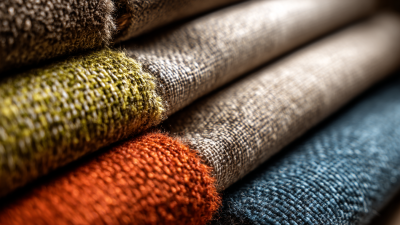
The Evolution of Sofa Fabric Through the Decades and Its Impact on Interior Design Choices
-
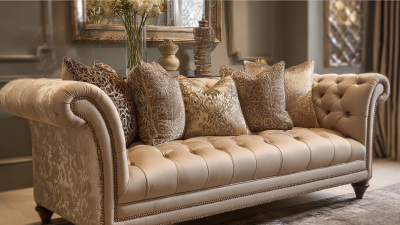
The Ultimate Guide to Choosing the Perfect Sofa Upholstery for Your Home
-
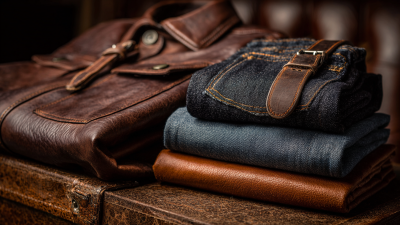
7 Inspiring Ways to Elevate Your Style with Leather Material
